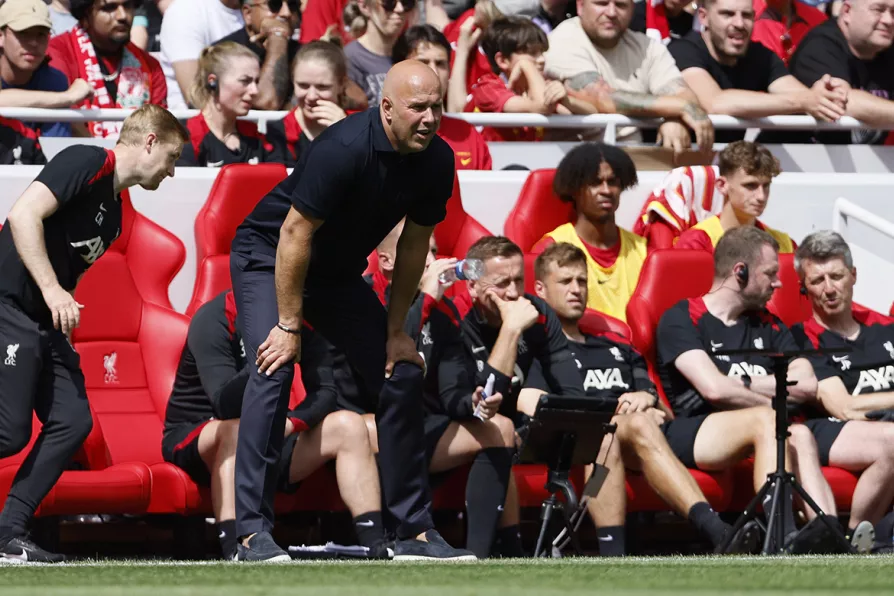Slot's first shot at Anfield glory
JAMES NALTON writes how Liverpool’s post-Klopp era hits home as new Dutch manager prepares to take charge of his first competitive home game

 Liverpool's Arne Slot during the pre-season friendly match at Anfield, Liverpool, August 11, 2024
Liverpool's Arne Slot during the pre-season friendly match at Anfield, Liverpool, August 11, 2024
THIS weekend it will really hit home that Liverpool have entered the post-Jurgen Klopp era.
Arne Slot will take charge of his first competitive game at Anfield as Liverpool manager on Sunday when they take on a tricky, savvy Brentford side who are not dissimilar to Liverpool in the way they operate.
Similar stories

JAMES NALTON writes on how the title win has sparked long-awaited celebrations among fans after a triumph four years — and one pandemic — in the making

JAMES NALTON discusses how in some ways, Slot’s Reds are being criticised for their own success and are right in wanting to change the narrative












